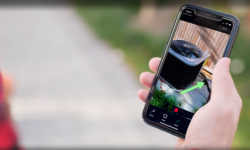3 in 4 U.S. Households at Risk to Get Hacked Via Voice Assistants by 2025
Recent findings show that voice assistants can get hacked by using ultrasonic waves to imitate voice commands, according to Atlas VPN.

NEW YORK — According to the latest Atlas VPN research, 75% of households in the United States will have a voice-assisted speaker by 2025. Recent findings also show that voice assistants can get hacked by using ultrasonic waves to imitate voice commands.
Ultrasonic waves do not make a sound, which means that voice-assisted speakers can be hacked without alerting the owner, according Atlas VPN, provider of a free VPN app.
Currently, voice-assisted speakers can be found in approximately 40% of homes in the U.S. It is estimated that the U.S. smart speaker market will almost double by 2025. In 2014, the devices were being used in .5% of U.S. households.
In February, a team of researchers hacked voice assistants on 15 of 17 popular smartphones. They tested both Apple (Siri) and Android (Google Assistant) devices.
The main findings, cited in the Atlas VPN press release, were:
Firstly, ultrasound can travel through solid surfaces to activate voice assistants. The waves are able to move through metal, wood, silicone rubber, and glass. In the experiment, the actual device transmitting ultrasonic waves was under the table, completely undetectable.
Secondly, it is possible to hear what the assistant answers and to continue the interaction. To do so, the first command sent to the device turns down the volume to a minimum. Then, the assistant’s responses get drowned in the noise of a busy street or a cafe.
Yet, sensitive microphones can intercept and amplify the response sound. Hence, hackers could carry out the attack while the phone owner is completely unaware. Using this approach, researchers were able to read messages, take photos, and make calls on the victim’s device.
This raises security concerns, as some banks use message authentication to access the account. Overall, findings lead to many new hacking opportunities.
“The biggest issue with voice assistants,” says Rachel Welch, COO of Atlas VPN, “they are listening day and night. It is true that Siri or Google Assistant only answer when you mention their names. Yet, to detect when their names were mentioned, they have to listen continuously.”
If you enjoyed this article and want to receive more valuable industry content like this, click here to sign up for our FREE digital newsletters!

Security Is Our Business, Too
For professionals who recommend, buy and install all types of electronic security equipment, a free subscription to Commercial Integrator + Security Sales & Integration is like having a consultant on call. You’ll find an ideal balance of technology and business coverage, with installation tips and techniques for products and updates on how to add to your bottom line.
A FREE subscription to the top resource for security and integration industry will prove to be invaluable.







